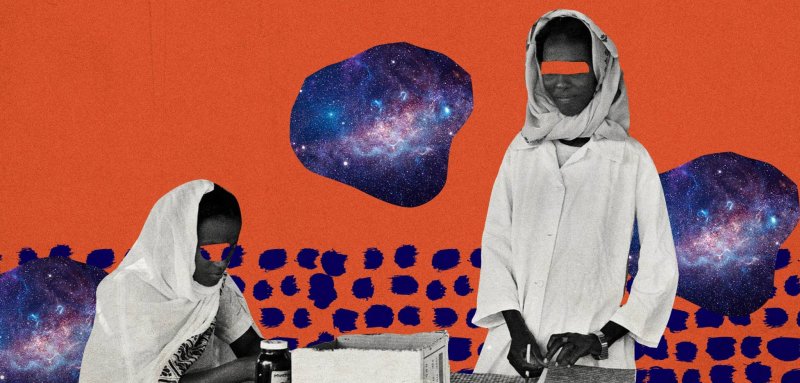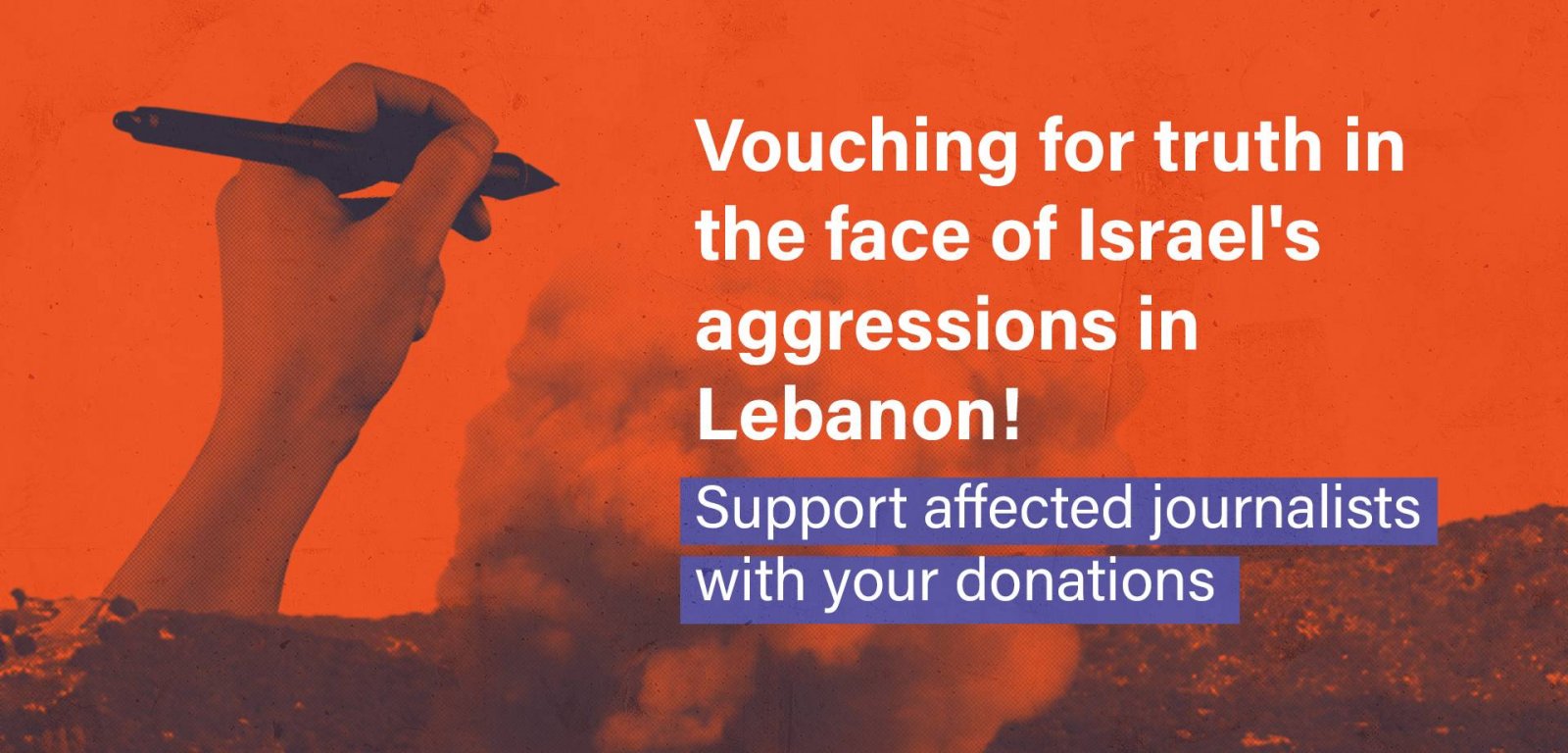As a child in the ‘80s in Sudan, I grew up consuming all the Sci-Fi I could get my hands on. I watched and read everything, from the VHS tapes of the original Superman, Mad Max and Star Wars Trilogy, which I watched daily, to the DC and Marvel comics translated into Arabic, which I waited patiently for every week.
What amazed me about Sci-Fi were the details in which writers and artists envisioned different futures. They were packed with possibilities. Pouring over the details of each panel and every scene made me feel like an explorer, travelling the multiverse.
My first attempt at illustration was when I would pause the film to draw my favourite scenes and add my own characters, mostly to involve people who looked like me. I was hungry for a future where people who looked like me were inspirational and played a leading role.
I also loved and consumed our own Arabic content, of course, but they were more children's magazines than comics. But, even these “comics” were about our past or took place in a present without questions. Thinking about it now, they functioned as propaganda for the great leader. There were never alternate realities, no mention of possible futures -- be they positive or overcast with a looming doom.
Non-fiction is a massive part of Sudan’s oral history, passed from mother to daughter since the dawn of time. I remember an older aunt telling my seven cousins and me the story of Fatima Alsamha and Algoul; the vivid imagery of the story came alive in the starry sky above me as I tried to keep my cousin’s foot out of my face, a difficult feat indeed since we had to share a bed.
Decades later, I read professor Abdallah Altayib’s book Folk Stories from Sudan and was shocked that my aunt had been giving us a watered-down version of these Sudanese fables. The real fables were much darker and often didn't end happily. That tradition of unstinting storytelling goes back a long way in our literature. You find it in the 10th-century classic A Thousand and One Nights and The Shahnameh (‘Book of Kings’) written by the Persian poet Ferdowsi for Sultan Mahmud of Ghazni between c. 977 and 1010 CE.
But again, even though those stories were about strange worlds and creatures, and weren’t considered subversive by the dictatorship because they didn’t propose alternative historical realities.
Somehow, the stories always felt ordinary, tied too much to the here-and-now. After some research, I found that several books from Muslim authors can be defined as Sci-Fi, like Hayy ibn Yaqdhan by Ibn Tufail in the 12th century. And though everyone knows of Mary Shelley’s Frankenstein (1818), which is widely regarded as the first work of true science fiction, we should all be as familiar with Sultana’s Dream by Rokeya Sakhawat Hussain. It was published in 1905 and is considered by many to be the first feminist science fiction book ever written.
We should all be familiar with Sultana’s Dream by Rokeya Sakhawat Hussain. It was published in 1905 and is considered by many to be the first feminist science fiction book ever written.
Sci-Fi is the source of many inventions that we consider non-fiction today. They’ve become so ordinary, it’s hard to imagine a world where they didn’t already exist. From Edward Bellamy predicting credit cards in his 1888 novel Looking Backward (63 years before they were put into use), to the smart tablets imagined in the 1968 classic 2001: A Space Odyssey, to the video-calling envisioned by Hugo Gernsback in his 1911 novel Ralph 124C 41+, or the Internet imagined by William Gibson in his 1984 novel Neuromancer. And of course, there’s the Big Brother surveillance system so hauntingly described in 1939 by George Orwell in his novel 1984. These imagined futures helped humanity shape our opinion on these technologies long before they became our living reality.
Can the saying “You don’t know where you’re going if you don’t know where you’re from” be used the other way around? I grew up in a world where our history was written not by us, but by those who had colonised us. If you don’t know where you're from, can you imagine where you could be going?
With more immediate, clear and present concerns of the here and now capturing our attention, imagining the future is a luxury and taking time to create visionary, unimagined futures becomes an extreme privilege.
In Islamic cultures, any time you discuss plans for the future, even saying “I’ll see you later,” we have to also add InshaAllah, “if God wills”. It’s an acknowledgement that we ultimately cannot foresee or control the future.
In Islamic cultures, any time you discuss plans for the future, even saying “I’ll see you later,” we have to also add InshaAllah, “if God wills”. It’s an acknowledgement that we ultimately cannot foresee or control the future. Colloquially, it becomes the requisite period at the end of any future tense sentence. Its absence would be jarring. And in our world, thinking deeper about any issue, let alone radically imaginative futures, would quickly get you labelled “a philosopher” -- a slur laced with derision.
With time I came to accept the limits of human control, but that doesn’t have to mean political complacency. We can say inshallah but still imagine and fight for liberation and empowerment as we saw in the Arab Spring.
As a Sudanese writing this today, it’s hard not to be heartbroken and deeply jaded after watching all the promises of the Arab Uprisings 11 years ago turn to civil wars and even more brutal dictatorships across our region.
But if the original Afrofuturism could be birthed in the minds of the enslaved Africans who envisioned a society free from oppression; after all, we also need to keep dreaming in our most hopeless presents.
The generations before us used technology, art, music, and literature to push society to a future full of empowerment. Let us make a future where coming generations can start imagining freely, not oppressed by the here-and-now.
I believe the continuation of Arab Spring protests today in Sudan and elsewhere, with women and men still fearlessly facing bullets, mourning their comrades and standing up for what they believe in, is the most significant proof that even in the bleakest times, we can see a better tomorrow. InshAllah.
Raseef22 is a not for profit entity. Our focus is on quality journalism. Every contribution to the NasRaseef membership goes directly towards journalism production. We stand independent, not accepting corporate sponsorships, sponsored content or political funding.
Support our mission to keep Raseef22 available to all readers by clicking here!
Interested in writing with us? Check our pitch process here!






Join the Conversation
Basema Mohammed -
1 hour agoالنص ناقد يسلط الضوء على الهوية الذكورية بلغة مباشرة وساخرة، ويطرح دعوة صادقة لإعادة تعريف...
Ghina Hashem -
1 day agoالحب حرام بس اعلامهم يلي ماجابت للبلد الا الدمار معليش يرفعوها نحنى محاربون في الشرق الاوسط كافة
ذوالفقار عباس -
2 days agoا
Hossam Sami -
2 days agoصعود "أحزاب اليمين" نتيجة طبيعية جداً لرفض البعض; وعددهم ليس بالقليل أبداً. لفكرة الإندماج بل...
Anonymous user -
4 days agoرائع و عظيم ..
جيسيكا ملو فالنتاين -
1 week agoزاوية الموضوع لطيفة وتستحق التفكير إلا أنك حجبت عن المرأة أدوارا مهمة تلعبها في العائلة والمجتمع...